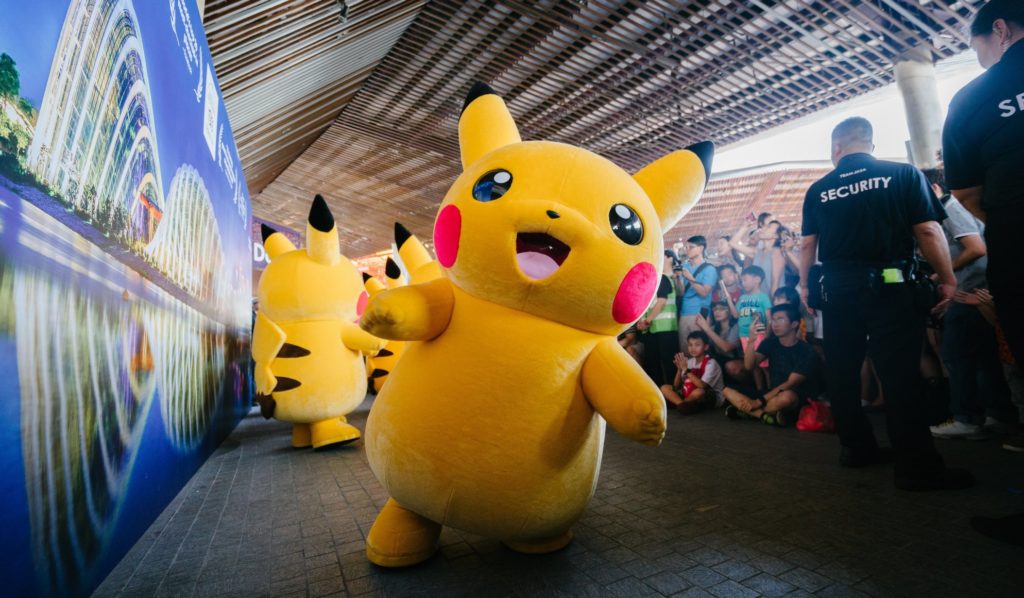As a father, I understand there’s a very delicate balance between wanting what’s best for your child and allowing them to follow their passions. The newest fade to cause this conflict is professional gaming…aka esports.
Is the idea of your kid being a professional gamer scary? It shouldn’t be. Esports is one of the fastest growing industries in the world. It has over 300 million fans and is expected to top $1 billion in revenue by 2021. As such, there is great potential for a successful career either as a professional gamer or in any of the other thousands of jobs available within the industry.
We want to help you understand your child’s desire to play professionally, explain the effort it takes, and help set realistic expectations for a career in competitive gaming.
It might sound easy for me to be supportive of a career as a competitive gamer being a millennial parent. But it wasn’t at first! It took some convincing and adjusting my mindset to see the potential of esports.
Understanding the Appeal

I’m a 90’s kid; I was raised right before the boom of video games. Our family only had a Nintendo 64 and a desktop computer on dial-up…snooze!
There was no online gaming, streaming, or even mobile gaming. Heck, the Internet was only a few years old.
Today, the video game industry has grown beyond my wildest dreams! Video games have never been more realistic, you can compete with players all over the world, and yes, you can actually have a career playing video games.
Before having a real conversation with your child about being a professional gamer, you’ll need to understand the appeal. Why does my child love video games?
The Draw of a Community
The first answer is usually because their friends love them. If you think back to your own childhood, you didn’t want to be the odd kid out. You wanted to do what your friends did.
Your child is constantly bombarded with video games at school, on the internet, and amongst their friends.
Video games, at their core, are about connecting us to other people. They allow your child and their friends to compete together. To create a social experience. To feel a part of a community.
You probably remember forging bonds with your friends on the basketball court or playing kickball. Well, video games have that same effect for today’s generation.
Most of the major esports tournaments use multiplayer games. Meaning it takes a team effort to win. A community coming together.
Having the opportunity to compete is another driving force behind the appeal. My only competition growing up was my brother and the neighbor kids.
Today our kids can compete with people all over the world! Which lets them prove they’re the best. There are no boundaries!
It Offers an Escape
Video games also offer an escape!
They gave my brother and me a way to get away from stress. We could jump into the colorful world of Mario without any worries.
Life is stressful! We know this as adults and your child experiences stress as well. This is why they need to escape from the daily stress of life.
Sort of like…unplugging by plugging in…huh??? That made sense in my head..ha!
Fame and Fortune
Finally, your child’s desire to play video games could be as simple as wanting fame and fortune.
Some very wealthy people in the world built their fortune playing video games. The top esports athlete in 2017 earned $2 million.
Most big money winners obtain this income from tournament winnings, gaining a massive social media following, and being signed to sponsorship deals.
It’s no different than what LeBron James is doing.
We need to understand that competitive gaming is more than a hobby. The old stereotype of gamers living in their parent’s basements is no longer relevant. You’ve got to change your mind mom…dad, it’s a different world.
The top athletes in competitive gaming are likable, smart, and very skilled.
At the end of the day, we just need to be thankful that our kids have aspirations. Even when we don’t fully understand them.
We need to encourage these aspirations; having something to strive for is very healthy.
Help Them Achieve their Dreams

Ok…so now you understand your child’s point of view. They merely want to fit in, compete, and potentially make lots of money.
But how do you help your child compete? First, I’m proud of you for wanting to be involved.
There are so many different aspects of esports that having an adult point of view can be helpful. Yup, they need you just as much. Don’t tell them I said that.
Play with Your Kid
To start it can be very helpful to understand the game your child loves to play. Knowing which game they play will help you guide and coach them better.
Just ask your kid to let you play. They’ll get a kick out of showing you the rules and how to play. Have FUN! Plus it will help you bond.
Once you finally understand the game you can start researching how to go pro in that specific game.
Figure out who the best players are, what makes them the best, and if your child is good enough to compete with the best.
Having a baseline of knowing where your kid ranks against the competition will be beneficial.
Time to Get Serious
You’ll need to explain to your kid that if they want to be a professional gamer, they’ve got to take this seriously…this ain’t no joke!
It’s no longer just a game anymore! They will have to spend a lot of time playing and studying to increase their skills.
Meaning intentional practice time; even when they don’t want to play video games. And yes that will happen too.
In the immortal words of Allen Iverson, “Practice, we’re talking about practice.”
It takes time and effort to be the best, and the best gamers understand this.
Make Good Lifestyle Choices
While they practice, it’s vital that you help them have live a healthy lifestyle. Let me repeat…a healthy lifestyle.
They need to have a proper diet, exercise regularly and take breaks from the screen.
Throw away the Red Bull, Mountain Dew, and pizza. Quality and healthy food will help your child focus and improve brain function.
Playing video games competitively can lead to stress. Encouraging your kid to try yoga can help maintain stress levels.
Support Their Dream
The last thing you can do for your kid’s competitive gaming career is to be supportive.
We’ve all seen those videos of the crazy parents yelling at pee-wee football games. Well, you have to become that crazy and supportive in competitive gaming. Just don’t beat up any referees. Keep it under control, you crazy supportive parental figure!
Let them know that you’re on their side and that you believe in them! As they compete, they’ll need a cheerleader to push them to be better.
Your patience will obviously be tested sometimes as they pursue their dreams. Help them stay focused on their vision, promote a healthy lifestyle, and support them.
Drawbacks to Competitive Gaming

I’m aware that most of this article has been very supportive of esports and pursuing a career in professional gaming.
Even though there is a lot of good in competitive gaming, there is a harsh reality that we all need to grasp as parents.
Every kid with a passion for gaming will think they can go pro. They’ve beaten all their friends, neighbors, and other gamers online.
Ready for the Big Show?
Just because they’ve been able to win doesn’t mean they’re ready for the big show.
Very few people actually become professional gamers. The likelihood is the same as becoming a star in the NFL or NBA.
Pressure to Perform
When you start entering competitions the entire mindset changes. It’s a job, and the pressure to perform is heightened.
All of a sudden you have teammates relying on you or even sponsors expecting you to perform at a certain level.
Many people can’t handle the additional pressure that comes with being a professional.
We need to set realistic goals for our kids. Encourage them but show them it’s not as easy as it looks.
Professionals often have to move away from family, travel constantly, and have difficulties maintaining a normal life.
It’s not an easy commitment, and the potential to make it big is minimal.
Life After Gaming
Most esports athletes retire by the age of 24. Meaning your child will need to plan for life after gaming.
Having difficult conversations about being good enough and when to stop is never easy. It’s one of the more difficult parts of parenting.
Just be real with your child and come to a mutual understanding of what it takes to become a professional gamer.
Options Other than Gaming

If it turns out your kid isn’t good enough to become a professional gamer this doesn’t mean their dream dies.
There is a vast job pool within the esports industry. Just because they aren’t playing doesn’t mean they can’t be involved.
You Don’t Just Have to Game
Talk to your kids about their other passions and show them the careers within esports that support those passions.
If they enjoy writing and talking about esports encourage them to pursue a career in journalism.
Maybe they have a knack for technology and are very creative. Try signing them up for coding classes.
They can get a degree in computer science and go out and build their own games.
They can pursue a marketing job in the industry, become a gaming coach, or even a referee at different tournaments.
There are a lot of very respectable jobs within esports.
You can accomplish two things at once by allowing them to follow their passions and helping them find a career.
Closing Thoughts
I’ll leave you with this thought-provoking video by Noah Whinston. Noah is a 21-year-old who started his own esports franchise, the Immortals. In the video Noah, having done a TEDx talk at UCSD called “Evolution of Labor Rights in Tech”, offers valuable insights into working with gamers, how gamers see themselves and how the industry needs to find healthy ways to grow if it’s going to be sustainable.
Related Question
What are the most popular games being played? Typically the most popular games are League of Legends, DOTA 2, Counter-Strike: Global Offensive, and Overwatch. Also, quickly moving up in popularity is Fortnite.








